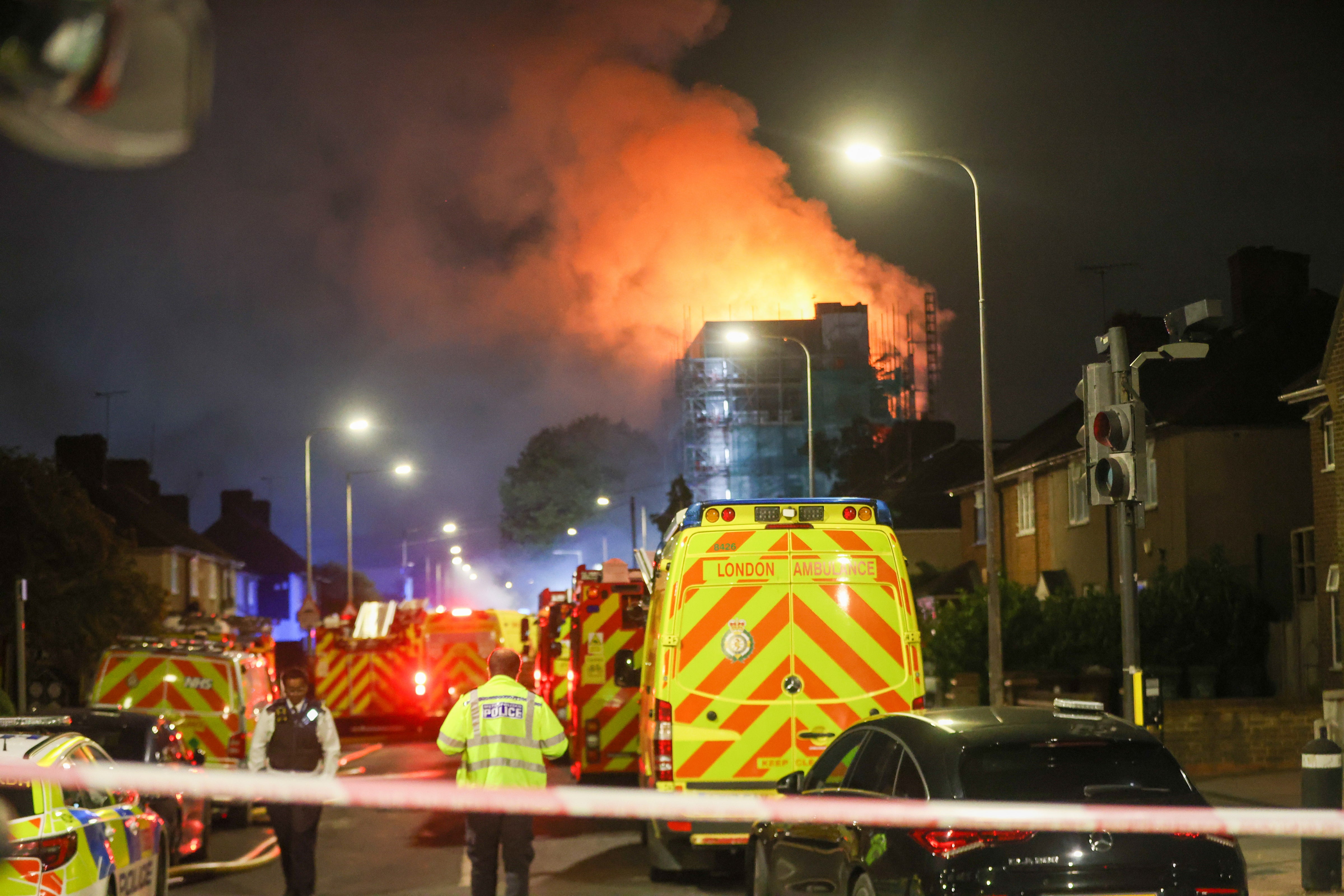The Dagenham blaze proves we still have not learnt the lessons of Grenfell
Editorial: The time has long since passed for official, bureaucratic inertia to be cleared away and replaced with a campaign of building works driven forward by the highest level of government

Although it is already clear that the fire at a residential and business block in Dagenham hasn’t inflicted the same scale of injuries as so tragically occurred at Grenfell Tower seven years ago, the parallels are still chilling.
In both cases, the blaze began in the middle of the night; there was the same terror for the desperate residents; and, more shocking still, the Dagenham structure was still apparently covered in “non-compliant” cladding – exactly the same factor that exacerbated the spread at Grenfell.
As with Grenfell, residents of the Dagenham block had been campaigning to have fire-safety issues resolved, to no avail. There are also claims that inadequate alarms and protocols were in operation at Dagenham, such that the people living there were unable to ascertain how to protect themselves and their families.
No doubt the truth will come out in due course, but if it is found that the authorities and others involved failed in their duty to learn the lessons of Grenfell and put in place robust interim safety measures, then that would be an unforgivable blunder. Indeed, it might well result in legal consequences, and rightly so.
If the reports about the cladding at Dagenham are correct, it is also appalling that, seven years after 72 people died and another 70 were injured in the Grenfell disaster, unsuitable materials should still be covering residential buildings of any height, age or design. This cladding, let us be clear, actually serves to accelerate the spread of a blaze, meaning that it rapidly outruns the ability of the fire brigade to control it. It would be bad enough during the day, but at night, when most are asleep, the results are still more hazardous to life and limb.
The home secretary has issued a statement thanking the emergency services for their bravery, as is right and fitting, but soon she must ask questions of the local authority, of those who managed the building, and of the bodies responsible for its safety: most pertinently, why was the cladding not removed years ago – and were other proper safety measures put in place?
It is also not too soon to investigate why ministers failed to ensure the removal of this cladding, or ameliorate the risks, in the years following the Grenfell tragedy. Central, devolved and local government should have been laser-focused on removing the flammable material with the utmost urgency, regardless of cost. The remedial works should have been undertaken as if they were in response to a 999 call, and not allowed to drag on, gambling with people’s lives – people who had no great political influence or power.
It should have been a case of Whitehall saying it would fix the danger now and ask questions later. If the builders, architects or property managers had to be made legally and financially liable, then that could have been settled after safety had been assured and people’s lives protected. Plainly, this did not happen in Dagenham, where the cladding was only now being removed – and it is unlikely to be the only such example.
In what was declared a major incident, 100 people were evacuated and two were taken to hospital. For many, all they have in the world will have been destroyed. It could have been much worse. One grim irony is that the London Fire Brigade said that, as well as the ground floor and the roof, parts of the scaffolding surrounding the building, which was at last undergoing remedial work, were alight.
Soon the Grenfell inquiry will produce its final report, and it is likely to be devastating. Yet the Dagenham fire, and other such blazes since the Grenfell disaster in 2017, are a potent reminder that the more obvious lessons – also contained in earlier, interim reports generated by the public inquiry – have not been learnt and acted upon.
The time has long since passed for official, bureaucratic inertia to be cleared away and replaced with a campaign of building works driven forward by the highest level of government – a “mission”, to use the fashionable phrase. If the will is there, the blocks can be made safer, and lives saved.
Yvette Cooper, Angela Rayner and Sir Keir Starmer should bring the full machinery of government to bear on this intolerable situation.
Join our commenting forum
Join thought-provoking conversations, follow other Independent readers and see their replies
Comments
Bookmark popover
Removed from bookmarks